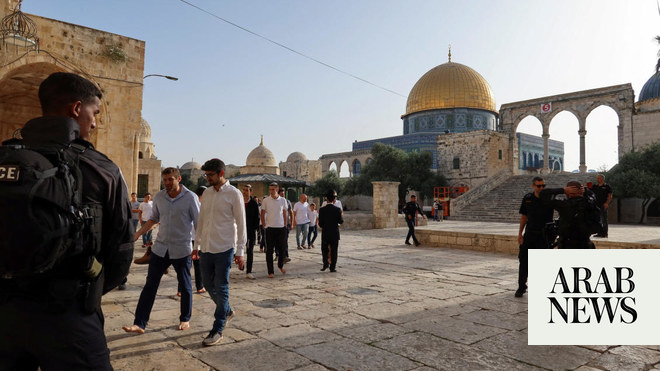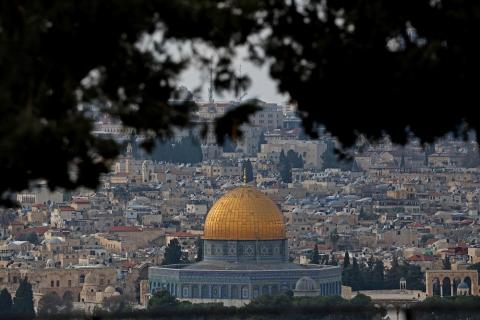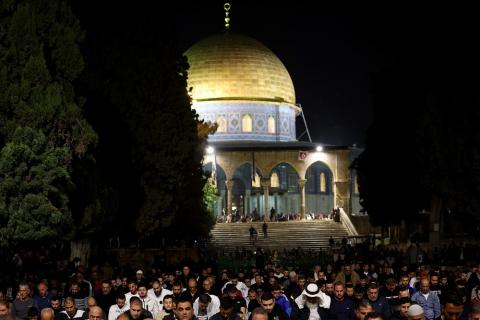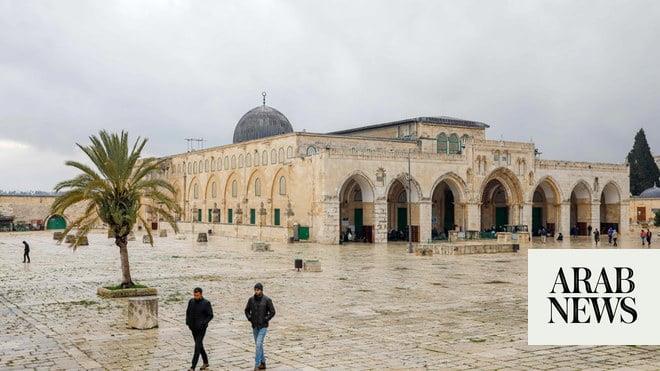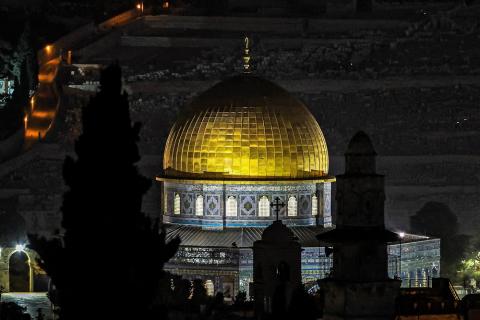
Israeli police to shut off Tuesday access the Al-Aqsa mosque compound in Jerusalem after several weeks of tension at the location.
Tuesday’s move was prompted after a Molotov cocktail damaged a police post. Video spread online of scuffles between police and Palestinians before the site was cleared.
More than 10 people were arrested, police said, including two minors allegedly linked to the firebomb attack who will be brought to a court for a remand hearing on Wednesday.
The Palestinian Red Crescent reported two people hurt, while police said an officer suffered from smoke inhalation.
Residents said police were also restricting Palestinian access to Jerusalems Old City, where the site is located.
Palestinian President Mahmoud Abbas denounced the "dangerous Israeli escalation" and warned of "serious repercussions." In a statement, he called on the international community to intervene.
Worshippers later prayed outside the locked gates of the site in protest.
The closure of the sacred compound also drew censure from Jordan, the custodian of Muslim holy sites in Jerusalem. Abdul Nasser Abu Basal, Jordanian Minister of Islamic Affairs and Holy Sites, described the barring of Muslim worshippers from the site as "a flagrant assault on all religious values, rights and freedom," and "an attack on all Muslims that touches the entire Islamic nation."
Turkish Foreign Minister Mevlut Cavusoglu lashed out at Israel over the incident, saying it was time to end the countrys "recklessness."
"We cannot accept such reckless attacks on holy sites and the whole world needs to react against it," the Turkish state-run Anadolu Agency quoted Cavusoglu as saying.
Israeli police later announced that the site would reopen "to worshippers and visitors" on Wednesday morning.
The compound is the third-holiest site in Islam and a focus of Palestinian aspirations for statehood.
It is also the location of Judaisms most sacred spot, revered as the site of the two biblical-era Jewish temples. Jews are allowed to visit but cannot pray there and it is a frequent scene of tension.
It is located in east Jerusalem, occupied by Israel in the 1967 Six-Day War and later annexed in a move never recognized by the international community.
Recent weeks have seen scuffles over a side building at the site known as the Golden Gate or Bab al-Rahma.
Palestinian worshippers have been entering the site despite an Israeli order that it should stay closed.
Access to the Golden Gate was closed in 2003 during the second Palestinian intifada over alleged militant activity there, police say.
Palestinian officials argue that the organization that prompted the ban no longer exists and there is no reason for it to remain closed.
Israel and Jordan are believed to be holding discussions to resolve the issue.
Police have filed a request with Israeli courts for an order to re-close the building, but the court has reportedly delayed any decision to allow for more negotiations.
There are concerns in Israel that tensions at the site could boil over and become a political issue ahead of April 9 Israeli elections.





